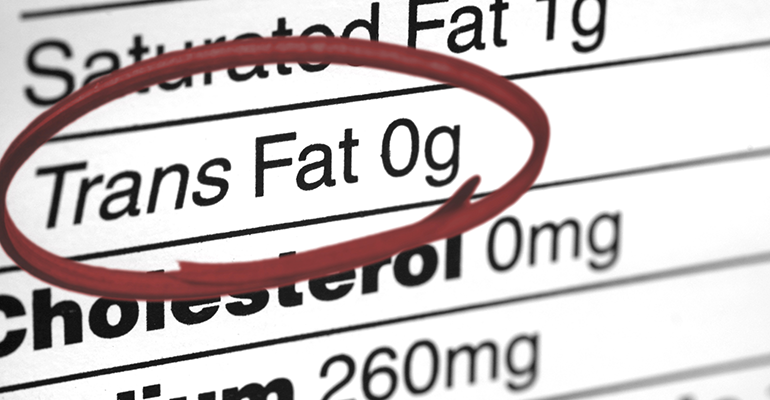News
Philippines to restrict trans fats in processed foods
5 Dec 2022
Use of artificial trans fats in pre-packed processed foods will be restricted in the Philippines as the country looks to eliminate its consumption from other sources too.
By June 2023, the sale of foods with more than 2 g per 100 g or 100 ml of industrially-produced trans-fatty acids TFA (iTFA) will be banned.
The new rules will give Filipinos a “fighting chance” against heart disease, according to campaigners. About 3,000 people in the Philippines die prematurely due to high consumption of TFA, according to the Food and Drug Administration (FDA) Philippines.

FDA Circular No. 2021-028 – also known as the ‘Guidelines for pre-packaged processed food products containing trans-fatty acids (TFAs)’ – was published in March, with amendments announced in November.
The circular prohibits the manufacture, use, importation, distribution, and sale of food sources, ingredients, and pre-packaged processed food products containing both partially hydrogenated oil (PHO) and high TFA content. Margarine, fried foods and doughnuts, crackers, biscuits, packaged pies, pancakes, and hot chocolate mixes will all be affected.
The FDA requires businesses to submit an accredited certificate of analysis indicating the food item’s TFA content, which should not exceed 2g per 100ml of total fat.
Food industry generally supportive of the regulation
Products containing more than that will need a certificate showing that the TFAs are “naturally occurring and/or obtained from [a] ruminant animal, from an accredited laboratory of the FDA and Philippine Accreditation Board/Office (PAB/PAO) or from the country of origin, with validated reference method of analysis and the limit of detection for the method used in the analysis”.
Claims such as TFA-Free, 0 g trans-fat or No trans-fat, or any similar claim, will also be prohibited on both labels and in the marketing or advertising of any processed food.
The regulations, which are in line with the World Health Organization’s (WHO) recommendations, will require businesses to reformulate their products by June 2023. According to WHO, replacing iTFA with healthier oils and fats is “cost-effective and feasible, and can be done without changing the taste of food or its cost to the consumer”.
The food and ingredients industry has been supportive of such regulations, with some companies moving ahead of legislation.
‘A fighting chance against heart disease’
Mary Grace Anne Rosales-Sto. Domingo, a public interest lawyer at ImagineLaw, told Ingredients Network that elimination of trans-fat in the food supply “will give Filipinos a fighting chance against heart disease”.
Cardiovascular diseases (CVDs) are the leading cause of death among Filipinos, taking more than 130,000 lives in 2021, she explained. Consumption of food high in iTFAs increases the risk of contracting heart disease by as much as 21% and related mortality by 28%.
“The Covid-19 pandemic exposed the vulnerability of people living with comorbidities such as cardiovascular diseases,” she added. “Now, more than ever, it is important and imperative to eliminate iTFA and reduce the risk of contracting CVDs and other diseases.”
Total elimination of trans-fat from packaged food is the next step. Several bills have been filed and are currently pending in both houses of Congress. Domingo said the bills would ensure that aside from pre-packaged and processed food covered by FDA, other food sources such as restaurants and traditional markets would also be trans-fat-free. “The public must continue to support and call on legislators to urgently pass the trans-fat-free Philippines bills in Congress,” she added.
WHO global framework to replace artificial trans fats
In May 2018, the World Health Organization (WHO) called for the global elimination of iTFA by 2023 and released the REPLACE action framework. The framework is a roadmap for countries to implement the prompt, complete and sustained elimination of iTFA from the food supply.
 © iStock/Dzevoniia
© iStock/Dzevoniia
At the last count, in December 2021, 40 countries now have “best-practice” trans-fat elimination policies in effect, protecting 1.4 billion people around the world. Best practice for TFA elimination requires: 1) a mandatory national limit of 2 g of iTFA per 100 g of total fat in all foods; and 2) a mandatory national ban on the production or use of PHO as an ingredient in all foods.
In 2021, Brazil, Peru, Singapore, Turkey, the UK and the European Union all introduced such measures. The Philippines is among the first lower-middle-income countries to pass best-practice trans-fat elimination policies; others to have done so include Bangladesh, India, and Ukraine.
“Elimination of industrially produced trans-fatty acids is a straightforward nutrition policy that will prevent heart attacks, save hundreds of thousands of lives, protect all people, reduce health inequalities and reduce pressure on already strained health systems,” said WHO director-general Dr Tedros Adhanom Ghebreyesus in an update last year.
The Philippine Chamber of Food Manufacturers, which represents the food industry in the country, was approached for comment.
Related news

Empowering innovation in fortification and colouration
13 Nov 2025
Divi’s Nutraceuticals offers a large portfolio of innovative, high-quality ingredients for foods, beverages, and supplements, with bespoke solutions and expert support for product success.
Read more
Danone highlights digestive health as potential ‘tipping point’ for food industry
13 Nov 2025
Danone is betting on a food industry “tipping point” that will bloat the market for healthy products, particularly those related to gut health.
Read more
Standing Ovation and Bel scale up casein production from dairy co-products
11 Nov 2025
Foodtech company Standing Ovation has partnered with cheese specialist Bel Group to manufacture dairy serums for industrial-scale casein production via precision fermentation.
Read more
New UPF standard hoped to offer consumers ‘coherence and clarity’
10 Nov 2025
Ingredients companies are being urged to enter “a new era of partnership and innovation” following the launch of the industry’s first non-UPF verification scheme.
Read more
Whistleblowers accuse UK meat industry of promoting cheap, unsustainable supply
7 Nov 2025
An anonymous group of industry insiders has accused the UK’s biggest food companies of systematically driving down meat quality and welfare standards.
Read more
Cottage cheese makes a comeback as consumers call for cleaner labels
6 Nov 2025
From ice cream to dips and ready meals, cottage cheese is experiencing a renaissance as a high-protein, clean ingredient for health-conscious consumers.
Read more
Bord Bia presents Irish dairy ingredient suppliers at Fi Europe
6 Nov 2025
Dairygold Co-operative Society, The Carbery Group, and Ornua Co-operative: Meet with sustainable producers of Irish dairy ingredients at Food ingredients Europe 2025, Hall 7.2 Stand M18.
Read more
Faravelli at Fi Europe: Showcasing FARA® functional solutions for food and nutra
28 Oct 2025
At Fi Europe 2025 in Paris (stand 72M39), Faravelli showcases FARA® Customized Functional Solutions and a wide ingredient portfolio for food and nutra – delivering quality, innovation, and expertise.
Read more
Agrigum Redefined FIBER
27 Oct 2025
Agrigum has transformed gum acacia into a natural, science-backed fibre that supports gut health, sustainability, and innovation across global food and nutrition applications.
Read more
Expanding boundaries in food & beverage innovation
23 Oct 2025
IMCD and FrieslandCampina Professional expand partnership to deliver Kievit® across EMEA, enabling brands to enhance quality and accelerate time-to-market for tomorrow’s food & beverage creations.
Read more